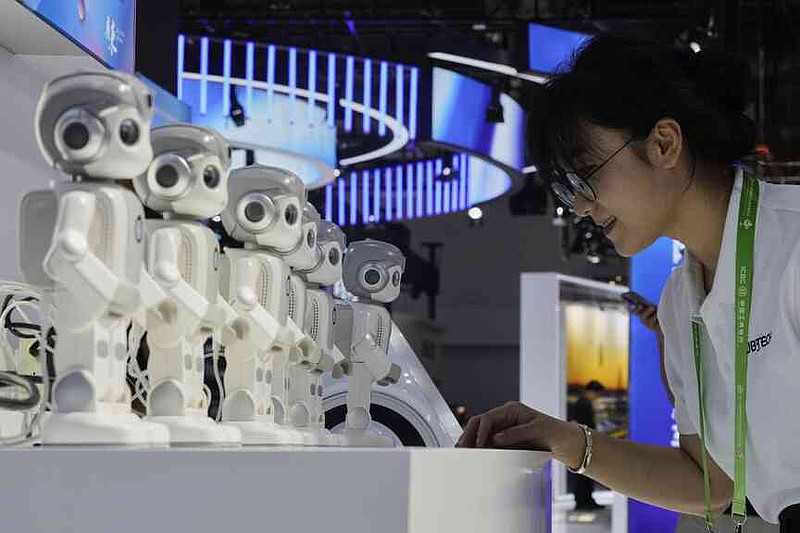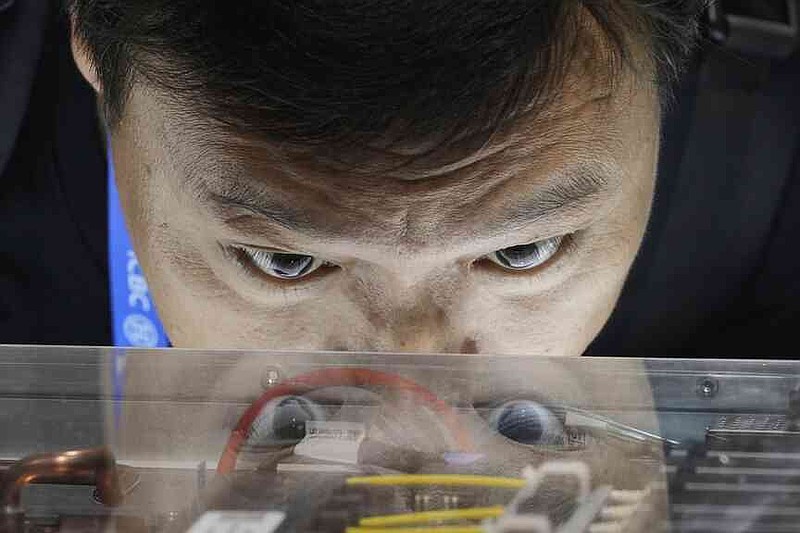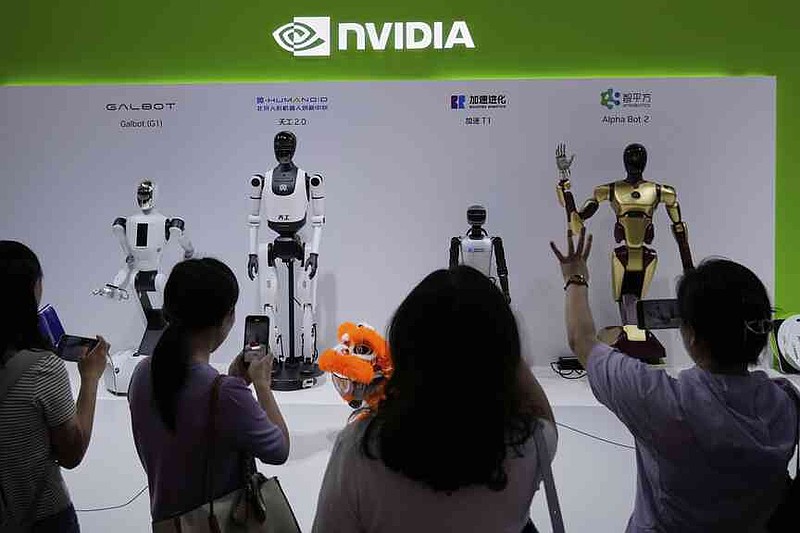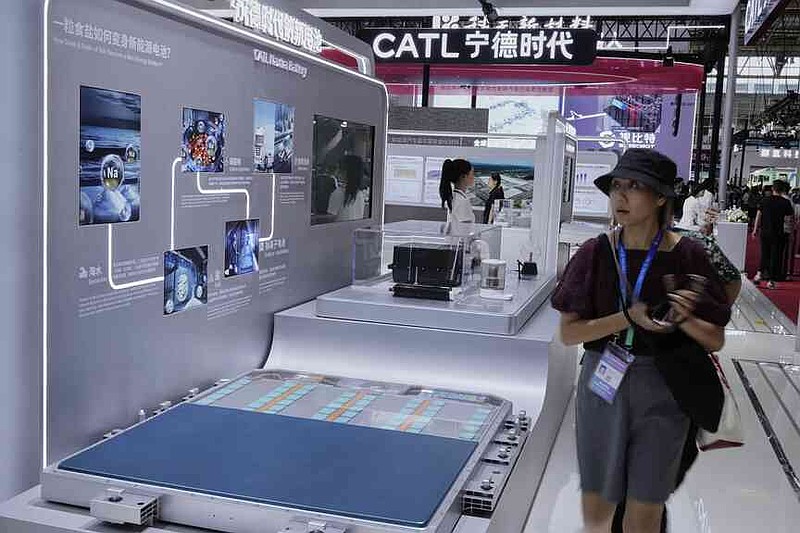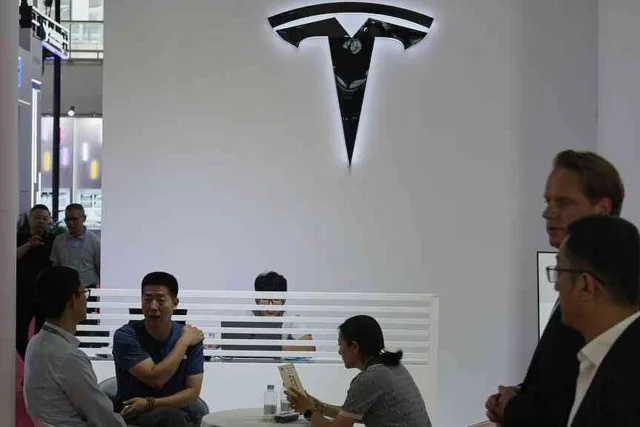BANGKOK — China’s state security agency says it is cracking down on supposed smuggling of rare earths minerals that it says threaten national security, just weeks after China and the United States agreed to make it easier for American firms to obtain those materials, which are critical for manufacturing and computer chip production, from China.
In a report published Friday in the state-run newspaper Global Times, the Ministry of State Security said foreign «espionage and intelligence agencies» were colluding to steal rare earths-related goods by repackaging and relabeling rare metals to hide their Chinese origin.
In some cases the minerals were falsely declared as non-controlled items, mislabeled as such things as «solder paste,» mixed into other materials like ceramic tiles or hidden in plastic mannequins or bottled water, it said.
It referred only to an unnamed «certain country» that it said lacked the capacity to make and refine its own rare earths.
Investigations had found Chinese criminals were involved, exploiting shipping and delivery channels to evade controls on exports of the materials used in many high-tech applications including electric vehicle batteries, it said.
The crackdown followed a report by Reuters earlier this month detailing how rare earths were being transshipped to the U.S. via Thailand and Mexico.
China is the main source for many strategically vital rare earths, and it has moved to slow exports of such minerals in retaliation for steep import duties President Donald Trump has imposed on Chinese goods since he returned to the White House and launched his crusade to overturn a global trading system he says is unfair to the United States and its workers.
That followed an earlier series of restrictions by Beijing on exports of such materials as gallium, germanium, antimony and tungsten in response to trade friction with the administration of then-President Joe Biden.
In April, Beijing imposed permitting requirements on seven rare earth elements, under a Chinese law that applies to all exports, not just those bound for the U.S. market.
With the permitting process taking 45 days, the new requirement caused a pause in shipments, threatening to disrupt production of cars, robots, wind turbines and other high-tech products in the U.S. and around the world. The U.S., meanwhile, added to restrictions on exports of advanced technologies to China.
Rare earths have remained at the center of China-U.S. talks aimed at staving off huge tariff increases that were postponed in May to allow time for negotiations on a broader trade agreement. The deadline for reaching a deal is Aug. 12.
An agreement announced in late June did not remove China’s permitting requirement on rare earths, but Beijing agreed to flexibility in dialing up or down the approval process as needed.
Computer chips are another key bone of contention.
The Chinese Commerce Ministry said Friday that it had taken note of a decision by the Trump administration to lift restrictions on exports of key semiconductors used in artificial intelligence made by Nvidia and its rival Advanced Micro Devices.
In April, the Trump administration announced it would restrict sales of Nvidia’s H20 chips to China — as well as MI308 chips from AMD.
But Commerce Ministry spokesman Wang Wentao said restoring healthy trade ties will require more action by Washington.
U.S. export controls on Ascend chips made by Chinese tech giant Huawei Technologies have hurt the interests of Chinese companies, Wang told reporters in Beijing.
«We hope that the United States and China will meet each other halfway and correct their wrong practices through equal consultation, create a good environment for mutually beneficial cooperation between enterprises of both sides and jointly maintain the stability of the global semiconductor production and supply chain,» he said.
Battery production
The Commerce Department announced steep tariffs on an essential ingredient for batteries Thursday, imposing an additional cost on electric vehicle manufacturers and dealing another blow to an industry already suffering from significant policy changes.
China supplies almost all the refined graphite that Tesla and other car companies and suppliers use to make batteries. On Thursday, the Trump administration issued a preliminary ruling that Chinese suppliers were guilty of «dumping» and imposed tariffs of 93.5%. In trade law, dumping is the practice of selling goods in another country for a lower price than in its home market.
The decision will hurt many automakers like Ford Motor and suppliers like Panasonic and LG Energy Solution that have been setting up battery factories in the United States. The tariffs are likely to raise prices for electric cars at the same time that the federal government is eliminating tax credits of up to $7,500 for people who buy or lease the vehicles. That tax credit will end Sept. 30 under a tax and policy bill that Trump signed this month.
This week, Panasonic began producing battery cells at a new plant in De Soto, Kan., that will employ 4,000 people. LG manufactures batteries in Tennessee and other states. They are among numerous companies that invested in U.S. manufacturing operations with financial support from the federal government that Republicans have sought to eliminate.
Graphite accounts for less than 8% of the cost of a battery, according to Panasonic. But batteries are the most expensive components in an electric car. Doubling the cost of graphite could easily add $1,000 or more to the price of a battery. The Trump administration has imposed other tariffs on imported auto parts and vehicles.
Tesla and other companies filed numerous objections to a petition for the tariffs submitted by the American Active Anode Material Producers, a group of graphite suppliers in the United States and Canada that sought the duties.
Tesla said in a letter to administration officials in February that it had already agreed to buy graphite from U.S. suppliers, but «they have not yet shown the technical ability to produce commercial quantities» of battery-grade graphite «at the quality and purity required by Tesla and other battery cell manufacturers.»
The automaker did not immediately reply to a request for comment Thursday. Elon Musk, the company’s CEO, was one of Trump’s biggest supporters before a recent falling out.
The anode material producers group applauded Thursday’s decision. «Dumping is a malicious trade practice used by China to undercut competition and wield geopolitical influence,» the organization said in a statement.
The decision is preliminary, but companies must begin paying the duties immediately. They would receive refunds if a final decision, expected in December, reverses the preliminary finding.
Information for this article was contributed by Elaine Kurtenbach of The Associated Press and Jack Ewing of The New York Times.
